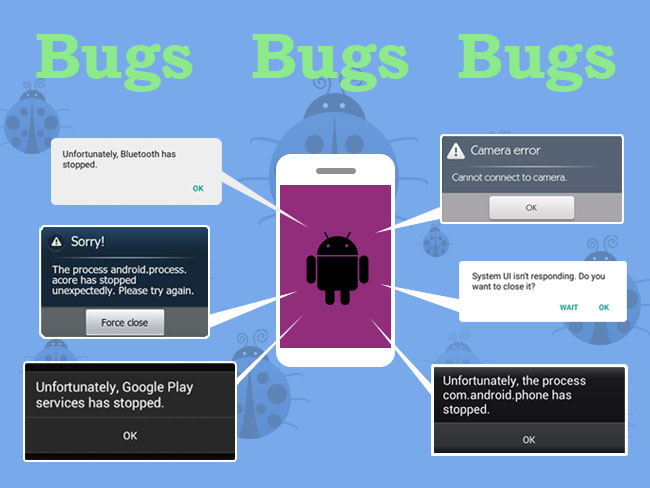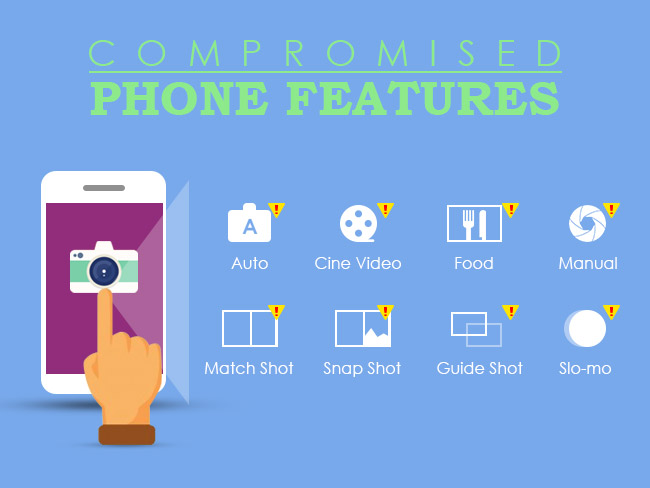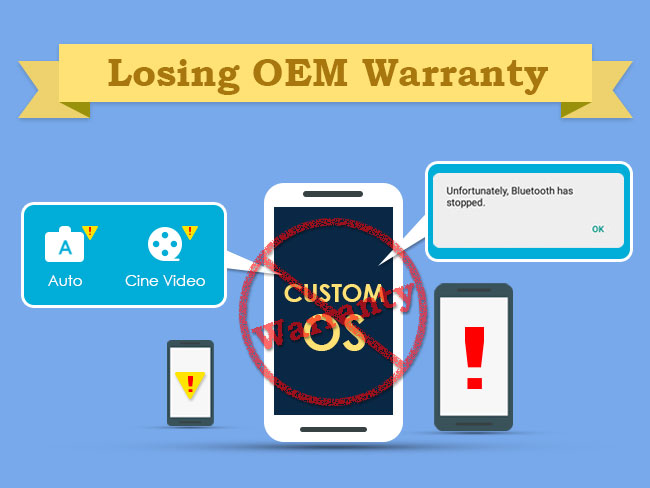2017
5 Reasons Why People Regret Running Custom OS on Smartphones
Android
If you’ve been thinking about running a custom OS on your smartphone, my kind advice is for you to better think again. Is it really worth all the trouble to install a custom OS on your phone and break your warranty?
Average reading time: 6 min 12 sec for average reader
TL;DR – Warning: A custom OS can cause critical problems in phone and installed applications. You may have good reasons why you want to install custom OS, but here are the 5 reasons why you’ll regret it:
- Bugs, bugs, bugs
- Compromised Camera Features
- Unsupported Hardware and Apps Issues
- Shorter Battery Life
- Losing OEM Warranty
Free Your Phone And Lock Yourself
A lot of people want to install a custom OS on their phones, most commonly Cyanogen, because they believed it gives them more freedom with their devices. True enough, installing a custom OS comes with a lot of benefits, like privacy, flexibility with apps, and constant updates.
The Android operating system is an open source system that allows individual developers to explore and customize their own software or firmware based on it. However, OEMs (original equipment manufacturer) hold the responsibility in providing firmware updates to all the handsets they made available in the market; they take this game seriously, and in fact, it is one of their selling points.
Changing your phone’s firmware is really going to compromise your OEM Warranty, some phone features, and some must-have OEM-installed apps.
1. Bugs

Who likes Bugs? These tiny creatures are seriously cute but having them run your phone will make you want to pull your hair out. Bugs, as some people call it, are tiny firmware hiccups that can annoyingly ruin your device (and day) in the long run if not taken care of.
You’d sure hate to restart your device every time it lags or misbehaves, but this is what bugs do. They love to interrupt and whether you like it or not, carelessly installing a custom OS without investigating further about its compatibility with your device is a sure reason for regret.
Also, we generally discourage installing a custom OS that has just been recently released;
- It’s not fully tested
- You won’t see device compatibility updates from customers themselves.
As a general rule of thumb in a world full of doubt, always read reviews. Customer reviews can come from forums or third party communities and it’s the best and most helpful way to get genuine replies and working solutions.
2. Compromised Phone Features

Forget about taking the perfect selfie if you install a custom OS because there’s a really high likelihood that all the camera features installed by your phone’s OEM is erased once you replace the original OS.
Software design plays a big role in the function and output of the camera. Some open source OS did not write optimized apps like the camera that is specifically for your hardware model/type. You will have lesser flexibility when it comes to taking photos, editing them and even storing them.
Asking for a little more privacy shouldn’t sacrifice a major phone function, but if you don’t like taking photos, it might be worth the price to pay.
3. Unsupported Hardware and App Issues

More often than not, you would realize that you don’t entirely hate your phone and there are apps or hardware features you would want to keep. However, it doesn’t always work with custom OS.
Custom OS developers focus on more practical aspects of the phone like the level of customizability, privacy, longevity, and performance. Also, the apps that you want to keep may be exclusive to your phone’s OEM in which case, they really don’t have access to tweak or modify to start with.
Since custom OS apply to any android-running phone brand or model, the chances of tweaking or fixing a specific app aren’t something that is usually covered.
However, one of the most important promises of custom OS is the higher level of privacy it offers when it comes to app installation or use. Mindlessly allowing or giving apps “permissions” to your contacts, camera, location, SMS, etc is dangerous to your privacy.
Most custom OS give you another layer of privacy by disabling “permissions,” or giving better customization options that you want to sync when you are trying to install an app. On the other hand, OEM OS isn’t as flexible when it comes to this, but they have added features that let you know whenever something fishy is happening to your device or to the apps installed in it.
4. Shorter Battery Life

A lot of people install custom OS because they wanted to prolong battery life, however, it isn’t successful all the time. Fortunately, rooting your phone or installing a custom OS aren’t the only ways available to increase your battery life.
Some custom OS let you tweak the amount of power being used by underclocking or undervolting your phone. Contrary to what most believe, some handsets actually drain their battery faster with custom OS than with the original OS it used.
This is because the custom ROM may not be optimized to your phone’s specific model or there are bugs that affect your phone’s performance. In the end, it does otherwise what it’s supposed to do. If you are after longer battery life, you need to manage your phone usage better.
Switching to airplane mode or closing the apps running in the background can also help increase your battery’s life.
5. Losing OEM Warranty

Ok so, everyone probably experienced hating how their phone’s interface appears, like wanting to have a specific picture or theme run in the background. Unfortunately, some OEMs don’t have this level of customization, and that’s why a lot of Android users choose custom OS.
However, installing a custom OS is like throwing the baby out with the bathwater. For you to be truly satisfied with your new custom OS you need to have a certain level of skill and understanding on how it works.
Unless you have the technical knowledge to tweak or play with it, you will most likely end up frustrated. In most cases, custom OS isn’t user-friendly and since it isn’t tied to any manufacturer, getting customer support for the software may not even be part of your options.
Also, software design varies per manufacturer, model, and country. As mentioned earlier bugs, fixes, and updates have now become the responsibility of the software developer and not your phone’s OEM.
Nonetheless, some manufacturers estimate only 2-3 years for a handset’s lifespan which means no more software updates for your device leaving it more vulnerable to privacy threats or hackers and this is one reason for the need to install custom OS.
If you are past your warranty and you’re ready for a newer phone if this quick fix didn’t work, then you can give this option a shot.
All products, and company names, logos, and service marks (collectively the "Trademarks") displayed are registered® and/or unregistered trademarks™ of their respective owners. The authors of this web site are not sponsored by or affiliated with any of the third-party trade mark or third-party registered trade mark owners, and make no representations about them, their owners, their products or services.

Comments are closed.